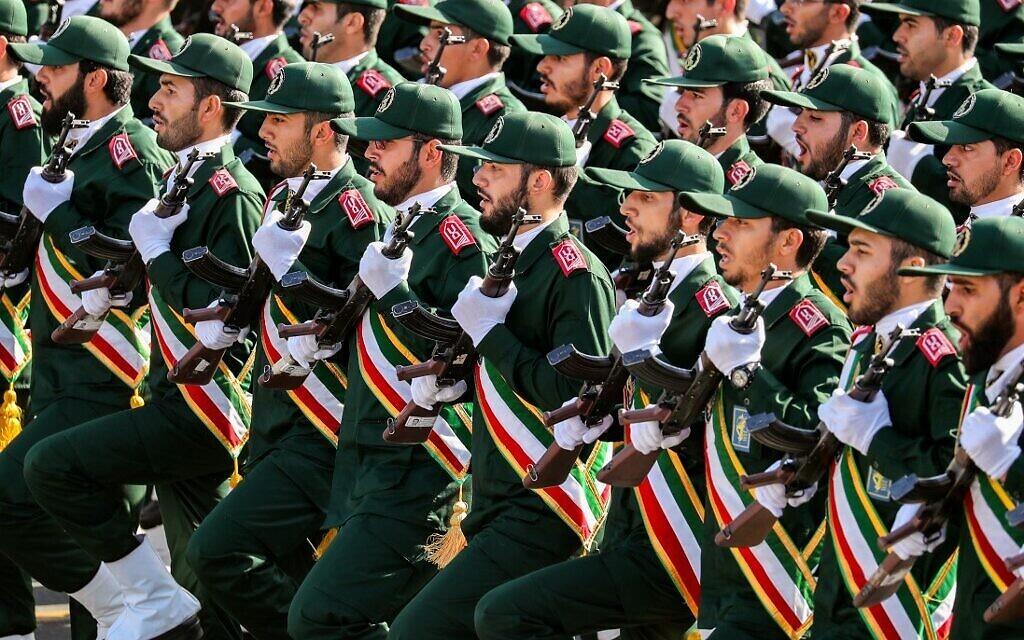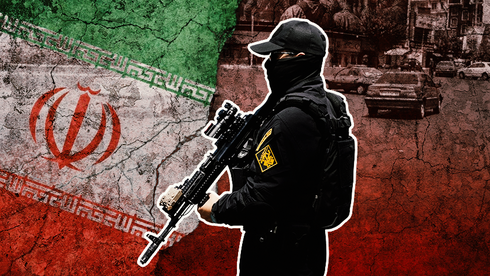The Indian action thriller Tehran, recently released on Netflix, follows the familiar formula of Bollywood cinema: heavy on clichés, exaggerated action sequences and melodramatic twists. Yet its availability—even in Iran, where official access to Netflix is blocked—has stirred anger among the Islamic Republic’s security apparatus, the same institutions that for nearly five decades have orchestrated terrorist operations across the globe.
Hardline websites and social media channels linked to Iran’s powerful paramilitary Islamic Revolutionary Guard Corps (IRGC) have denounced the film as India’s “gesture of loyalty” to Israel following June’s military strikes against Iran. That accusation, however, does not withstand scrutiny: the film was completed years earlier and only now surfaced on Netflix’s global catalogue.
The story behind Tehran
The plot centers on a rogue Indian police officer tasked with investigating a car bombing that targeted a senior Israeli official in New Delhi. The officer uncovers that the IRGC was behind the attack, which injured his wife, child and several bystanders. The film dramatizes the incident by showing an Indian child killed in the blast—a departure from the historical record.
Around the same time in Bangkok, three men and one woman attempted another attack against Israel’s embassy. Their operation descended into farce: the bomb detonated prematurely in their residence; another one in his escape, hurling a grenade that exploded at his feet; a third was swiftly apprehended. For weeks, Iranian social media users ridiculed the fiasco. At the time, I ran a website focused on freedom of expression, and I reported the story for Persian readers based on Thai press coverage. The female operative fled to Iran, though Thai police published the names and photographs of all four. It also emerged that before their mission, the men had spent considerable time with Thai sex workers and in entertainment venues—an irony not lost on observers.
2 View gallery


Members of Iran’s Islamic Revolutionary Guard Corps (IRGC) march during the annual military parade marking the anniversary of the outbreak of the devastating 1980-1988 war with Saddam Hussein’s Iraq, in the capital Tehran
(Photo: AFP)
In another concurrent incident, Georgian police in Tbilisi discovered and defused a bomb planted under the car of an Israeli embassy employee. All of these operations were attributed to Iran and linked to Unit 400 of the IRGC’s Quds Force. Their motive: retaliation for the assassination of Iranian nuclear scientists by alleged Mossad operatives inside Iran. Among those killed was physicist Majid Shahriari, assassinated in Tehran in November 2010 by a magnetic bomb affixed to his car—eerily similar to the method the IRGC later attempted in Delhi.
Manufactured confessions and a security fiasco
Shahriari’s killing proved a double embarrassment for the Iranian regime. Despite their boasts of complete security control, Iranian intelligence agencies floundered for months. They eventually arrested innocent men and women from Kurdistan province, subjecting them to torture and forcing televised confessions of involvement in the assassinations.
These broadcasts were riddled with contradictions and crude fabrications—so much so that observers mocked them as clumsy Photoshop forgeries. The outcry triggered internal reviews, and ultimately it was revealed that the confessions had been extracted under torture. While the prosecutor had demanded the death penalty, the key defendant, Mazyar Ebrahimi, was released after nearly two years in detention under a gag order. Years later, he exposed the truth in an interview with BBC Persian, adding to the disgrace of Iran’s intelligence system. Not all were so fortunate: Majid Jamali Fashi, another scapegoat, was executed shortly after enduring brutal torture.
Terrorists returned as heroes
Eight years later, in November 2020, three of the failed Bangkok plotters—Saeed Moradi, Mohammad Khezai and Masoud Sedaghatzadeh—were released from Thai prisons in a prisoner swap for Kylie Moore-Gilbert, an Australian-British academic held hostage in Iran on charges of espionage. They returned to Tehran to official fanfare. The fourth conspirator, Leila Rouhani, had long disappeared from public record after fleeing to Iran; such operatives are typically hidden in Tehran or reassigned to new missions abroad, far away.Operational command for the Delhi, Bangkok and Tbilisi plots is widely attributed to Majid Alavi, also known as Hossein Tehrani, who had been promoted to deputy intelligence minister shortly before the attacks. Alavi reportedly remains a shadow figure in Iran’s Ministry of Intelligence, overseeing covert operations and outsourcing terrorist missions to criminal gangs across Europe, including the UK and Sweden. These same gangs were linked to threats and planned attacks against Iran International, where I worked as a senior correspondent covering the unprecedented Iranian diaspora demonstrations in London in solidarity with the Woman, Life, Freedom movement in 2022. During my coverage, I was personally targeted, and later, one of my colleagues was attacked. To this day, I receive periodic threatening phone calls—sometimes in Kurdish, sometimes in Pakistani or Arabic accents from these criminal networks.
What is Tehran reflecting?
The release of Tehran has reopened memories of more than four decades of the Islamic regime’s state-sponsored terrorism. For regime critics, it is a reminder of the journalists, artists, intellectuals and dissidents brutally murdered or maimed abroad. For the regime’s security elite, it is an unwelcome spotlight on operations they would rather erase from memory. The Islamic Republic has, since its inception, been a terrorist state; appeasement only emboldens its violence.
For exiled Iranian journalists like myself and my colleagues in London, the shadow of the mullahs’ threats is constant. We are not like this movie hero or chase suspects through crowded streets, but by continuing to investigate, publish and speak truth to power, we deny the Islamic Republic the silence it craves.
And yet, these threats do not concern us alone. The regime’s reach extends far beyond Iran’s borders, destabilizing Europe and the wider world. That is why appeasement only emboldens Tehran. To hold it accountable is not merely an act of solidarity with Iranians in exile—it is a necessary step to protect global security.
Omid Habibinia is a veteran journalist, media analyst and human rights advocate with more than 33 years of experience across television, radio, print and digital platforms. He has worked with major international outlets including BBC Persian, France 24, MBC and Iran International, producing investigative reports, documentaries and live coverage on Iran, the Middle East and global affairs.

